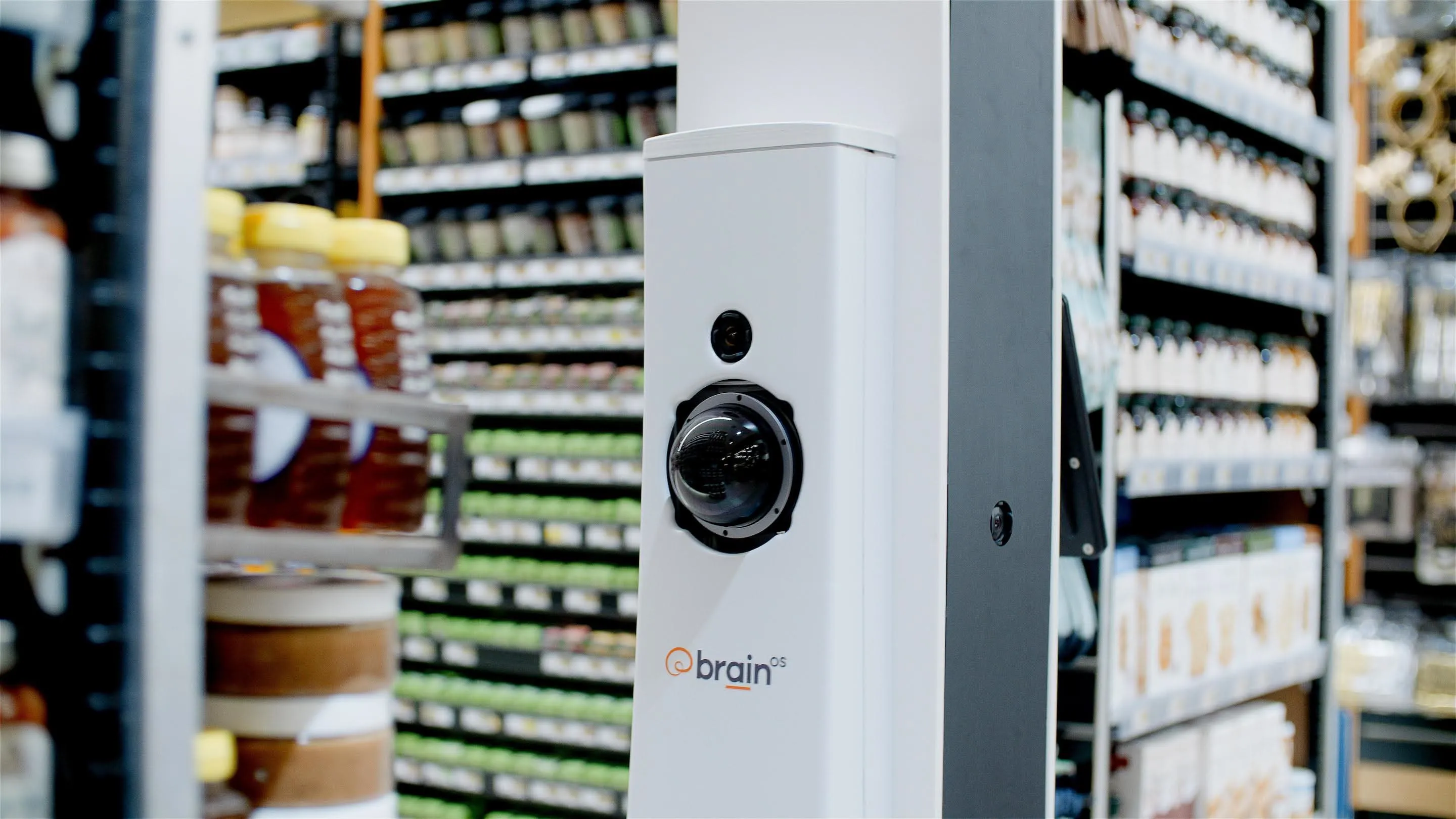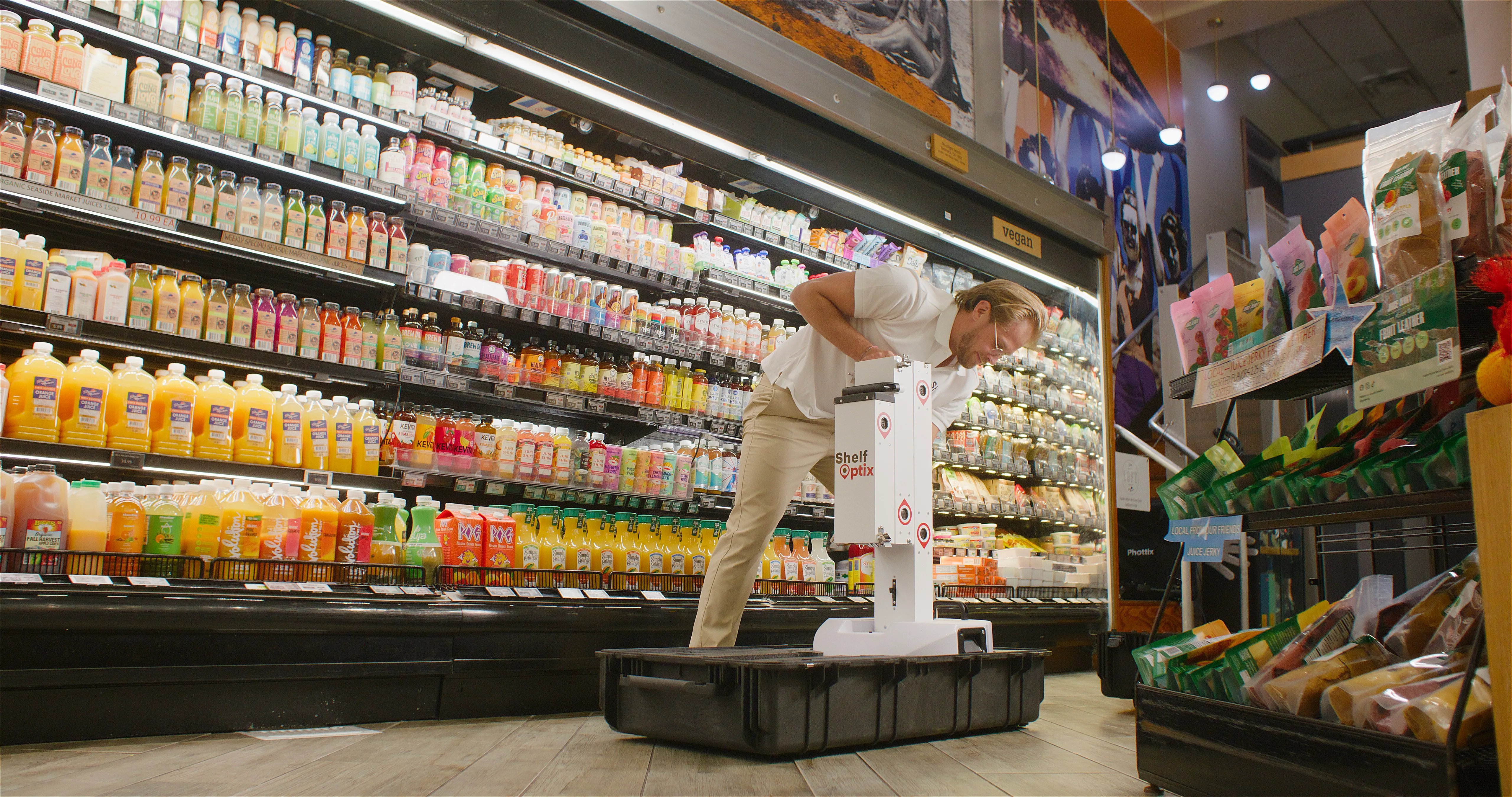Taking stock: the benefits of autonomous shelf scanning
Autonomous shelf scanning robots help stores stay stocked and priced right. See how they improve inventory management and customer satisfaction.

Summary
What makes robotic inventory scanning better than manual methods?
Robotic scanning is faster, more accurate, and more consistent than manual inventory checks. It can be done more frequently, providing real-time data that helps improve stock management and customer satisfaction.
Contents
As data collection, processing, and storage become more automatable, there is increasing momentum to digitize environments that were previously entirely analog. Adding to this are advances in computer vision that help to convert this data into new, real-time business insights. This is a positive development for brick-and-mortar retailers, who continue to look for ways to increase profits and attract loyal customers who shop with them in-store and online. While retail analytics can be applied to a variety of business processes, few are more impactful than store operations, where granular insights into inventory conditions like product availability, planogram compliance, and pricing accuracy have top- and bottom-line implications. After all, how successful can a retailer be if its shelves are understocked, mis-stocked, or plagued by incorrect or outdated pricing?
Traditionally, maintaining on-shelf inventory standards has fallen into the hands of store employees who eyeball shelves to see what’s missing and use handheld devices that scan barcodes to check for pricing accuracy. If it sounds labor-intensive, that’s because it is. It’s also time-consuming and tedious. Most importantly, it’s inconsistent and inaccurate. And it is now more vital than ever that retailers embrace repeatability, efficiency, and flexibility to keep up with shifting consumer demands and maximize margins–with less staff.
What is autonomous inventory scanning?
As an autonomous robot moves up and down the aisles, it takes high-resolution photos and/or scans RFID tags so that the location of the scan is known and the products contained in that scan are matched against product and inventory items the retailer has in its stock. This unlocks a multitude of store operations use cases for retailers, including automated data collection, store digitization, and improved shopping experience.
Key benefits of autonomous inventory scanning
It’s no secret the retail industry is embracing autonomy, with self-driving floor scrubbers rapidly gaining in popularity. The latest breed of autonomous mobile robots (AMRs), the inventory-scanning robot, brings greater accuracy, consistency, and speed to data collection and inventory management activities, making it impossible for retailers to ignore.
These six reasons map out why autonomous inventory scanning is vital to today’s retail operations:
#1 Localizes product and full-store maps
By capturing digital images and creating maps of a retail environment (across aisles, stores, regions, and entire markets), robotic inventory scanners confirm products are located where they should be and provide promotion validation. How? These autonomous robots safely move throughout a designated area, taking photos or scanning RFID tags of products, signage, and shelf sections. Scanning kicks off a streamlined process including stitching algorithms along with computer vision applications to develop whole-store maps that indicate where specific items are within the retail space.
#2 Ensures inventory availability
The bane of retail staff is making sure inventory is in stock, in the right place, and with the correct price. This involves collecting data via digital images that inform insights and quickly drive necessary actions: reordering products, restocking shelves, and rethinking merchandising. Manual inventory errors can be incredibly costly, with research showing they may lead to revenue losses of up to 30%. In 2023 alone, out-of-stocks were estimated to have cost retailers $1.2 trillion, highlighting the massive financial impact of inventory mismanagement. Robotic inventory scanners replace less accurate manual inventory checks to help minimize out-of-stocks much faster than ever before.
#3 Validates price accuracy and compliance
Autonomous inventory-scanning robots are designed to catch incorrect or missing prices and help prevent discrepancies between shelf prices and what rings up at the register. This saves staff time spent chasing down accurate price information, improves customer experience, and protects a retailer’s bottom line by preventing mistakes and lost customers.
#4 Confirms planogram compliance
Planograms are an art and a science and are integral to the profitable operations of any retailer. With more than 70% of consumers making purchase decisions at the shelf, the layout of products can significantly impact sales. Yet, maintaining this layout is a constant battle. Planograms tend to go out of compliance at a rate of 10% weekly, and surprisingly, only 57.4% of retailers have implemented systems to track planogram compliance, indicating a crucial area for improvement in retail management. Autonomous inventory scanning provides the imagery and data necessary for this type of reporting, whether for the retailer itself or its Consumer Product Goods (CPG) partners.
#5 Improves customer experience
Shoppers want inventory that is in stock, in the right place, and with the correct price. Regular inventory scanning with an autonomous robot will ensure retailers have the necessary data at their fingertips to drive inventory management at scale so customers are satisfied and keep coming back.
#6 Makes picking easier for omnichannel retail
In recent years, the popularity of pick-and-pack services and online grocery ordering has grown substantially. eeping inventory insights current is even more challenging when catering to all the different methods of shopping that exist today. Autonomous inventory scanning robots capture real-time data that lets retailers know what’s in stock and where, helping retailers better plan product placement to optimize the in-store pick paths for pickers. Interested in learning about Brain Corp’s technology for autonomous shelf scanning for your retail business? Contact us to speak with one of our robotics experts.
Related product resources

Press release

Press release
Brain Corp and Driveline Launch ShelfOptix™: The First Fully Managed, Robot-Powered Shelf Intelligence Service

Press release
Brain Corp and Driveline Launch ShelfOptix™: The First Fully Managed, Robot-Powered Shelf Intelligence Service
Brain Corp and Driveline Launch ShelfOptix™: The First Fully Managed, Robot-Powered Shelf Intelligence Service

Press release

Press release
Brain Corp Launches Industry-First Trust Center to Elevate Transparency Around Safety and Security for Autonomous Mobile Robots

